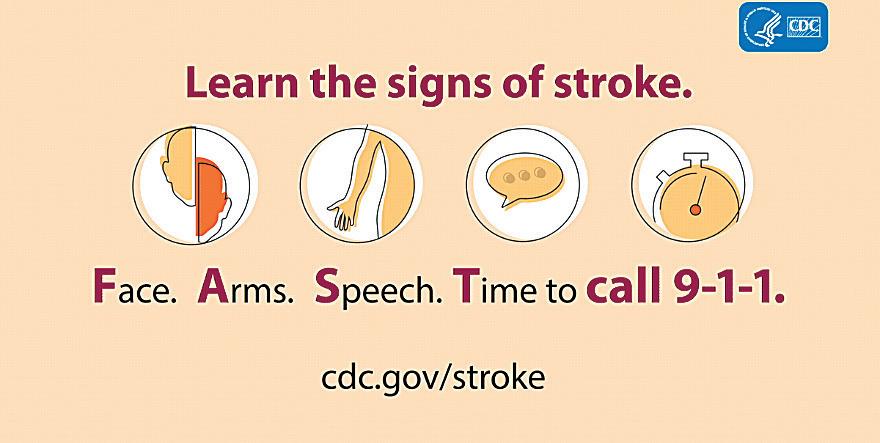
2 minute read
Keep watch on the aches and pains that come with aging
Thinking Healthy
getting more and more fragile, and I now understand why some seniors walk around like they’re navigating an icy lake. These are people who have fallen through the ice before.
It’s important to note that while the signs of aging hit all of us at some point, there are aches and pains that we should never ignore. These are from the Centers for Disease Control and Prevention: one or both eyes.
■ Sudden trouble walking, dizziness, loss of balance, or lack of coordination.
■ Sudden severe headache with no known cause.
These are all signs of a stroke and warrant the fastest call you can make to 911.
There’s a second set of symptoms the CDC says you should watch for as you age:
■ Chest pain or discomfort
■ Upper back or neck pain
■ Shortness of breath
■ Pain in the neck, jaw or throat
As we age, we all have a general sense that we’re going to slow down. We know that we’re susceptible to more diseases and conditions than young people. This shouldn’t be a surprise as we’ve been around old people throughout our lives. So why does it seem that since I turned 60, I feel like I’m falling apart?

I have always felt blessed that I’m a healthy person. I get my flu shot. I go to the gym and walk my dogs regularly. I get my yearly screenings and bloodwork done. Yet, since I turned 60, I get migraines when I drink wine. I had physical therapy for my back because I don’t stand up from my chair correctly at work.
Last night, I realized that my big toe hurt, and as I lay in bed searching the internet for the answer, I’m terrified that I found it: I might have gout.
The human body, sadly, doesn’t come with a handbook. If it did, it would say things like: After 60, always use the handrail on the stairs. Or perhaps: Don’t lift anything heavy because you no longer have flexible ligaments. It should also say: Buy a lot of ibuprofen because you’re going to need it.
It feels as though I’m rapidly
■ Sudden numbness or weakness in the face, arm, or
My husband walked into the bedroom a couple of years ago and told me that something was wrong. He couldn’t pick up his left foot and he couldn’t move his left hand. He had a stroke from undiagnosed atrial
■ Pain in the upper abdomen or back
■ Fluttering feelings in the chest (palpitations) leg, especially on one side of the body.
These are all signs that you may be having a heart attack and you need to call 911 or head to the emergency room.

Just to make life more confusing, other symptoms of a heart condition include indigestion, heartburn, nausea or vomiting, extreme fatigue, upper body discomfort and dizziness. These are all things we’re likely to have experienced across a normal year. The more you know your body, the easier it is to determine if you’re having a serious episode, or you simply ate the wrong burrito for lunch.
■ Sudden confusion, trouble speaking, or difficulty understanding speech.
■ Sudden trouble seeing in fibrillation (afib) and he needed an immediate ambulance. He was lucky because we knew what was happening and got help quickly. He recovered completely.
There is no doubt that aging brings with it a wild array of bodily changes. Some of them are just annoying, and some are truly dangerous. It’s important to start paying attention to your health, talking to your doctor more frequently and working on some good habits that keep you safe and healthy.
And for heaven’s sake, stay away from icy lakes.










